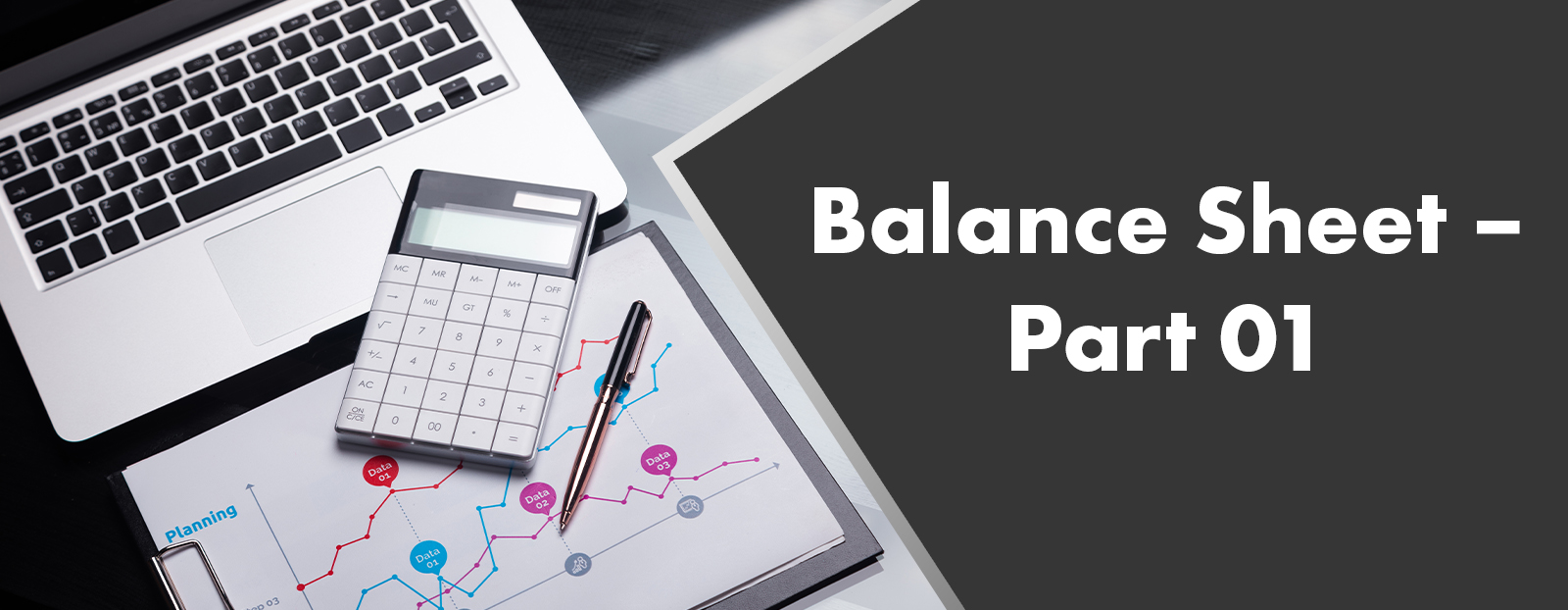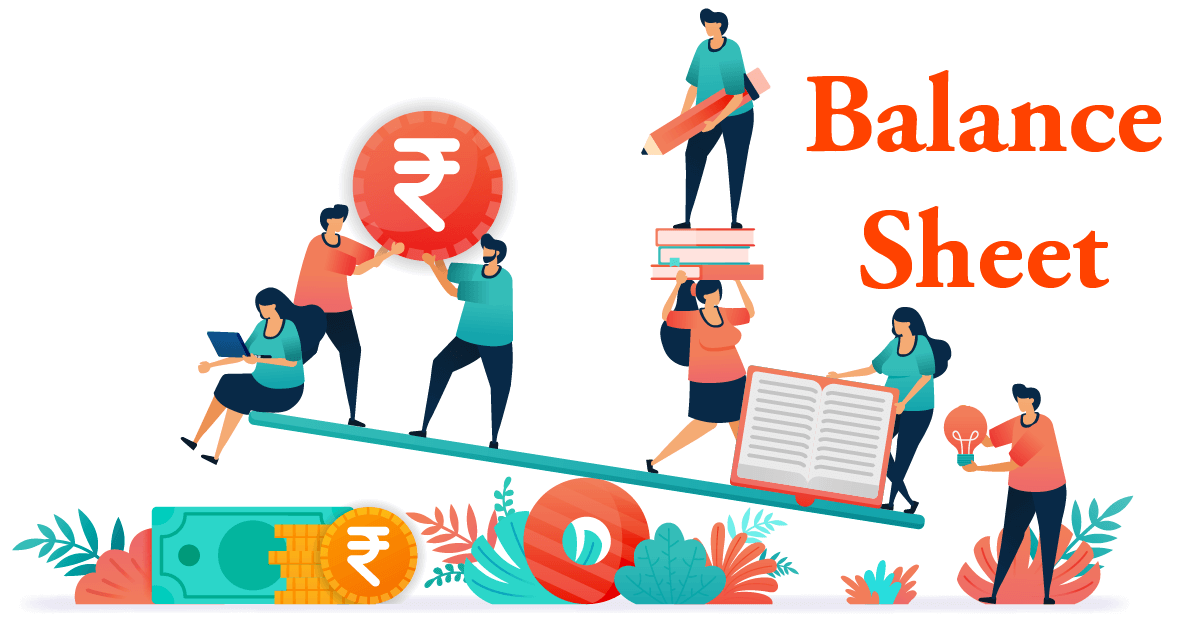
Balance Sheet – Part 01
Lead:
There is no rule regarding how much the entrepreneur should be educated or which knowledge stream he should belong to. But he must have the acumen of the business he owns. However, many entrepreneurs with such knowledge cannot read the balance sheet of their own business. Everyone should have a minimum required knowledge. Knowing all the details of a balance sheet is not necessary.
Matter:
Very often we hear the phrase ‘Balance Sheet’ when someone mentions any industry or company. The data from these balance sheets are often printed in newspapers and magazines as well. We also know that if a company is said to be in a strong position it has a strong financial balance sheet. Naturally, this financial statement called Balance Sheet is very important in the economical world. At the end of every financial year, companies declare their balance sheet. It is mandatory for the companies listed on the stock market to do this. But according to Government regulations, other companies must also prepare their balance sheet within a stipulated period. If a company does not prepare or declare its balance sheet as per government norms, then most probably there is something fishy. It means there are some wrongdoings in the company and it wants to mislead people. Some companies provide forged data or avoid providing authentic data in the balance sheet. This might not be exposed at an early stage. By that time investors, employees, partners, and other concerned people have already face severe losses. Needless to say, the balance sheet of a company is quite a serious matter to look upon. Though people eagerly wait for the balance sheet of a company, many a time, even the experienced people try to extract information of profit or loss of a company rather than the balance sheet; which is an ‘Income Statement’. One should always keep in mind that, ‘Balance Sheet’ and ‘Income Statement’ are two different things altogether. The senior officials and the managers of the companies study the balance sheet very late, as they are eagerly waiting for the income statement. The reason behind this is that even though the balance sheet depicts the financial health of the company, the ‘Income Statement’ describes the performance exhibited of the concerned senior officials. Critical decisions are taken by these officials but the performance of their juniors decides the profit or loss of the company. It means whether the company is in profit or loss can be known quickly through the ‘Income Statement’. As the senior officials are directly responsible for earning the profit for the company, they must face the consequences regarding the profits or losses. Factors like increment, bonus, promotion, and even their credibility depend upon the profit & loss. Hence, these officials are more interested in ‘Income Statement’ rather than the ‘Balance Sheet’ of the company.
If an expert in finance, a bank official, a member of the board of directors, or even a stock market investor goes through the documents regarding the financial performance of a company, the first thing he will look for is the ‘Balance Sheet of the company. He is likely to examine the balance sheet very keenly. Only after a satisfactory view, he may switch to the documents like ‘Income Statement’ and ‘Cash Flow Statement’ of the company. Even during examining those statements, he will tally all the numbers and figures with the balance sheet of the company.
Let’s find out the important reasons behind the difference in the point of view of managers working in the company and the financial analysts.
(1) Understanding an ‘Income Statement’ is comparatively easier than ‘Balance Sheet’. The reason being the observations in the ‘Income Statement’ generally match with the standard expectations in a financial report, but it is not same with a ‘Balance Sheet’. A person ignorant of the basic principles of accounting may get puzzled while examining a balance sheet.
(2) When most of the companies plan their activities at the beginning of a year, they prepare their budget. Every company projects the income and probable expenditure in this annual budget. The things described in the budget generally match with results in the ‘Income Statement’. Naturally, the managers in the company or the senior officials find the things in an ‘Income Statement’ quite familiar. These people are not directly related to the preparation work of the balance sheet of the company, as this work is done by the employees in the accounts department, the accountants know all the details.
To read a balance sheet, knowing the principles of accounts is a key skill. On the other hand, people who just prepare the ‘Income Statement’ need not have in-depth knowledge.
So, people working in a company should have basic knowledge about a balance sheet. It also applies to any budding or small entrepreneur/industrialist, and he must try to gather the basic knowledge about the balance sheet. The entrepreneur/ industrialist need not know all the things related to a balance sheet. It won’t be possible for him and is not needed either. Every industrialist should be careful about learning some of these basic principles so that no one can mislead him, and he can get a good snapshot of what is going in his business.
What is a balance sheet?
So, what exactly is a balance sheet? In simple words, the balance sheet shows us the assets of an industry and the liabilities it must repay to outsiders. Suppose if the loans obtained for setting up the company are subtracted from the assets; the remaining amount is the capital of that company. All industrialists always strive for constant improvements in profits. Likewise, constant improvements in the capital should be his second target. There is a clear relationship between increasing your profit and the capital. That is, one always helps the other to grow. Let us take an easy example to understand this relationship better.
A student’s marks in a single unit test can affect the overall result or grades for that year. So, if a student gets the topmost grades in a unit test, then it will have a positive effect on the overall grades or the result of that year. In the same manner, if a student gets very poor marks or grades in one exam, it will affect the final grades for that year. If we compare this example with ‘Income Statement’ and ‘Balance Sheet’, then the unit test stands for ‘Income Statement’ and overall annual performance of the student stands for ‘Balance Sheet’. It means that if a company gains a considerable profit in a quarter, it will be shown in the ‘Income Statement’. It will be like a student getting good marks in a unit test. Income statements of all the four quarters of this year will be considered at the time of preparing the balance sheet at the end of the year. Overall cumulation of the profit and loss during all the quarters of that year will be reflected in the balance sheet. The calculations for each quarter of the year are like the grades in the unit tests, they will be used to decide final grade that is the balance sheet.
As the profit increases, there will be an increase in the capital as well. And similarly, the capital will keep on decreasing if there is a loss for successive quarters. The reason behind this is that the figures for profit or loss are clubbed from the ‘Income Statement’ and added in the balance sheet. They are added in the balance sheet where entries like ‘net profit’ or ‘net loss’ are displayed. If there is profit for successive quarters, the figures in the ‘net profit’ column will keep on increasing but if the loss mounts, the figures in the ‘net loss’ column will keep on increasing.
Balance Sheet of an Individual and that of an industrialist.
Let us use a very simple concept to understand the concept of the balance sheet. What is a personal balance sheet? The answer is quite easy. What are his personal assets and how much he owes to others; these are the only two things which are required for this computation. We can state this by a simple formula –
Assets minus loans is the final amount left with that individual.
What are the assets? The things included in assets are the total amount in the bank account of a person, the price of the house (if he owns any), price of his vehicle, his investments in stocks, bonds, mutual funds, gold, etc. If someone else owes him some amount, the total amount of that loan also adds to the assets, as once the loans are cleared, there will be an increase in his balance.
All types of loans are included in the liabilities section- e.g. Housing loans, credit card dues, other loans and dues are listed in this section.
The amount left after deducting liabilities from assets is called ‘net worth’. If a person’s assets are more than the loans taken by him, then we can assume that he is in a sound financial position. On the other hand, if he has taken many loans and his total cash and the value of other assets are less than the loan amount, then we can call it as a weak financial position.
Every individual should try very hard to maintain a sound financial position. The reasons like loans taken without any valid reason, not paying loans and dues in prescribed time lead to an increase in the liabilities. It reduces the total cash left with him and his financial credit is adversely affected. Such a person would face many hardships. His loans will keep on increasing and his financial planning will be completely haywire.
In the same manner, we can study the balance sheet of any industry. The balance sheet of an industrialist is more complicated than that of any individual. Hence, the balance sheet of an industry is not very easy to understand. However, it is not impossible either.
We will see more aspects next time.
-Atul Kahate
(akahate@gmail.com )
Originally Published in Yashashwi Udyojak. Subscribe Today.

